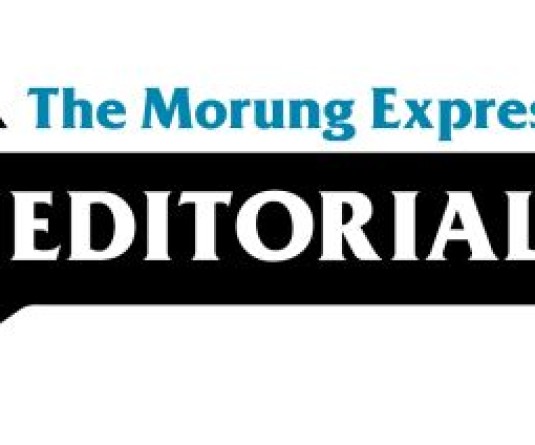
Dr Asangba Tzüdir
Life has always been at risk. The technological advancements have brought so much of comfort and made life easier but it has also increased human risks both mental and physical, often not even knowing the coming risks until one is confronted by it. And looking at the various kinds of risks today, it has considerably altered and has expanded in terms of its scale and scope notwithstanding the mystifying element of uncertainties associated with it, thereby making it more alarming and a cause for concern.
On the other side of technology are the humans as agents and perpetrators of risk, thereby impairing human progress and productive resources development. Parallel to it, the human dependence on technology has made human resources ‘redundant’ while the absence of human element as morals finds missing and only compounds the risks.
Added to the risks at hand, closer home, Nagas are currently threatened and antagonized by another form of risk - the ‘political uncertain risk’ and it’s never ending production of various forms of contested ‘knowledge’ through the ‘powers that be.’ And in the process, Nagas finds caught at a threshold, at a dichotomy between man and animal.
In the pursuit of a Naga Political Identity, Nagas finds themselves caught between solution and election and whichever it is presents serious political risks. The solution which is going to define the political destiny of the Nagas is sought in an uncertain pretext wherein the contents of the solution is not known and further compounded by the ironical question - What is it that we want through the solution? On the election front, the musical drama still continues and the degree of uncertainty and the risks has only magnified. Be it solution or election, the people are still not prepared to define and create an outcome that will be ‘acceptable’ and ‘good’ for all.
In such an environment of political risks, an “anthropological machine” operated by those in ‘power’ continues to keep the ‘people’ in a “zone of indistinction” between human and animals or to animalize beings. It is through such machines that the very edifice of violence on humans is legitimated and built. In order to stop this machine and work a way out of the impending political risks, a framework based on democracy and collectivity should take birth with a change in the very thought processes and mindsets and actively engage in a process of asserting the ‘Naga identity.’ As of now, this machine finds deeply implanted in our society and we ‘helplessly’ or ‘ignorantly’ or ‘complacently’ treat its presence as a norm. It is not a simple task because it is deeply rooted in our fundamental beliefs. Thus, our fundamental beliefs need to evolve within a value oriented system in creating the process of assertion.
On the political front, to a large extent, vulnerability, uncertainty and therefore, the various risks are self-manufactured; and in the ongoing production of risk and uncertainty, progress and development becomes sacrificed and human pursuits becomes reduced to goals that are no longer concerned about productive engagements or for the collective good.
In times of such political risks, it should provoke the ‘self’ that makes one a meaningful human as well as a political animal.
(Dr. Asangba Tzudir contributes a weekly guest editorial to The Morung Express. Comments can be mailed to asangtz@gmail.com)





